
Introduction
"Acne" is a word that receives hate daily, but we shall not give it control over us and seek to learn about it.
Acne that appears on the skin of many individuals is commonly thought to be a result of different types of diet, poor hygiene, or even the use of makeup. Do you think these are the actual reasons?
Find out more about acne, its causes, and the prevention methods we can apply.
Let’s go about our day without feeling self-conscious, go to work, make plans, and enjoy every moment of our day.
What is acne, and how does it form?
Acne most commonly appears on the face, neck, shoulders, back, and chest. This is because it forms in locations where there are sebaceous glands. These glands are responsible for the production of sebum (oil), with the main purpose of maintaining the moisture balance of the skin and hair.
Our skin has pores, and every single pore on the surface of the skin is an opening to a canal, which is the follicle. Each follicle contains hair and a sebaceous gland (oil gland). This gland secretes sebum (oil), which covers the hair and carries dead skin cells outside of the pore. However, sometimes the gland secretes an excessive amount of sebum for different reasons and carries a large amount of dead skin cells, which then causes the formation of a layer that clogs the skin pores, which results in acne. Bacteria that are usually on the surface of the skin start to multiply in the sebum and develop inflammation. This appears on the skin in many forms, such as whiteheads, blackheads, and cysts, depending on the location of the clog in the skin.
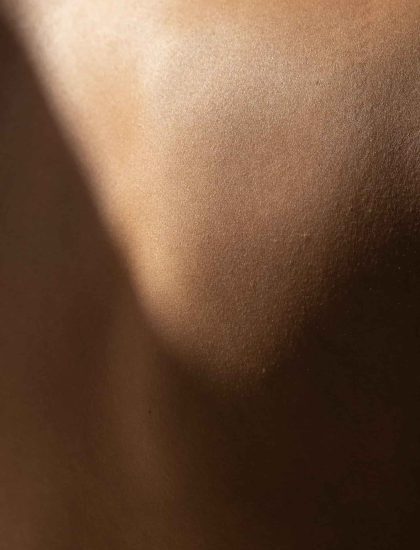
How acne appears ?
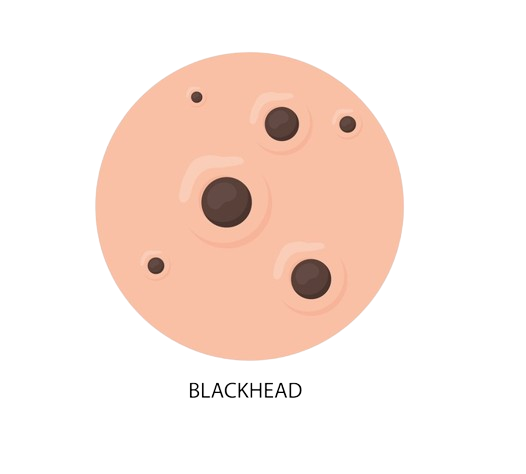
Black heads
(Not inflamed) - This type of acne occurs when the pores get clogged with oil, dead skin cells, and bacteria. The pore gets clogged but stays open, exposed to the air, which turns the oil in the pore black, which is why it is called a blackhead. (tiny black dots)
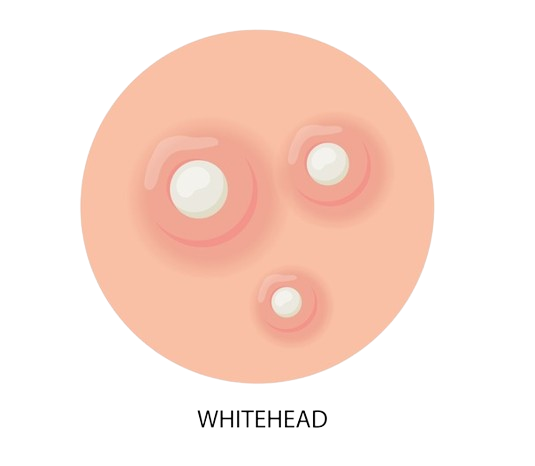
White heads
(Not inflamed) - This type of acne occurs when the pores get clogged with oil, dead skin cells, and bacteria. The pore gets clogged and closes at a higher level than the skin. (White bumps)
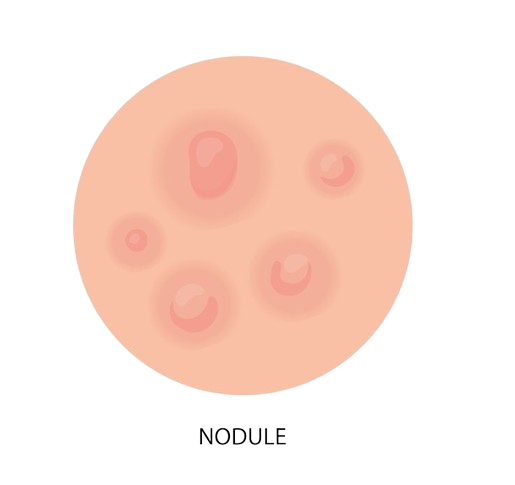
Nodules
(Inflamed) - This type is very similar to the papules and pustules, except they are more irritated and larger in size. They are large, inflamed bumps deep under the skin that are very painful to the touch and have no visible head.
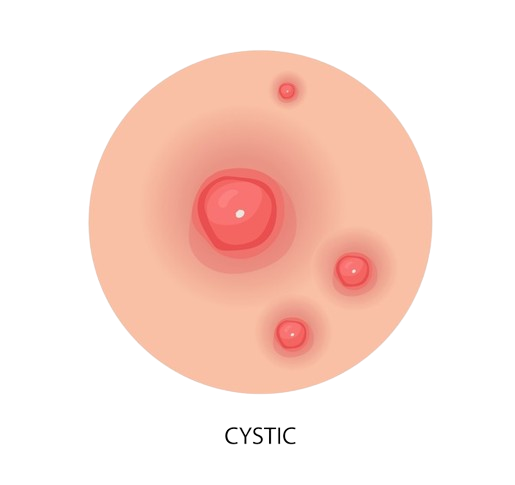
Cysts
(Inflamed) - The acne in this type is large in size and full of pus, caused by very deep clogging in the skin. This type is very painful and causes scars most of the time.
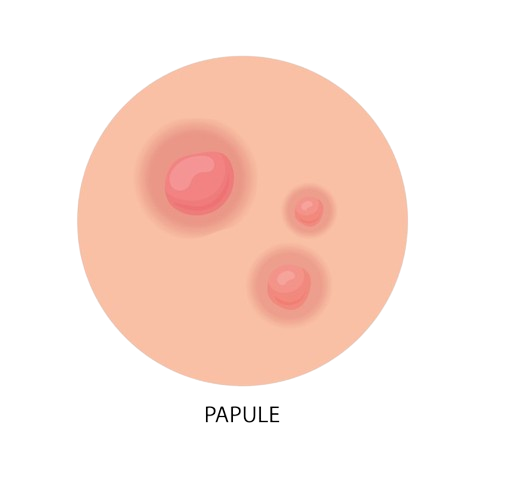
Papules
(Inflamed) - This appears when the bacteria present in the sebum break down the pore walls from the infection. (Red bump)
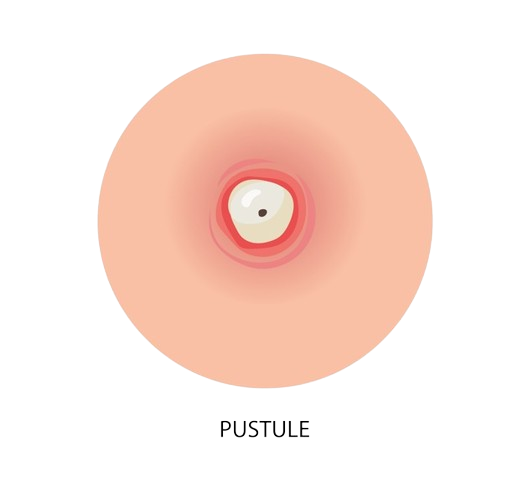
Pustules
(Inflamed) – This appears when the bacteria in the sebum break down the pore walls from the infection. A white bump with red skin around it has white or yellow pus.
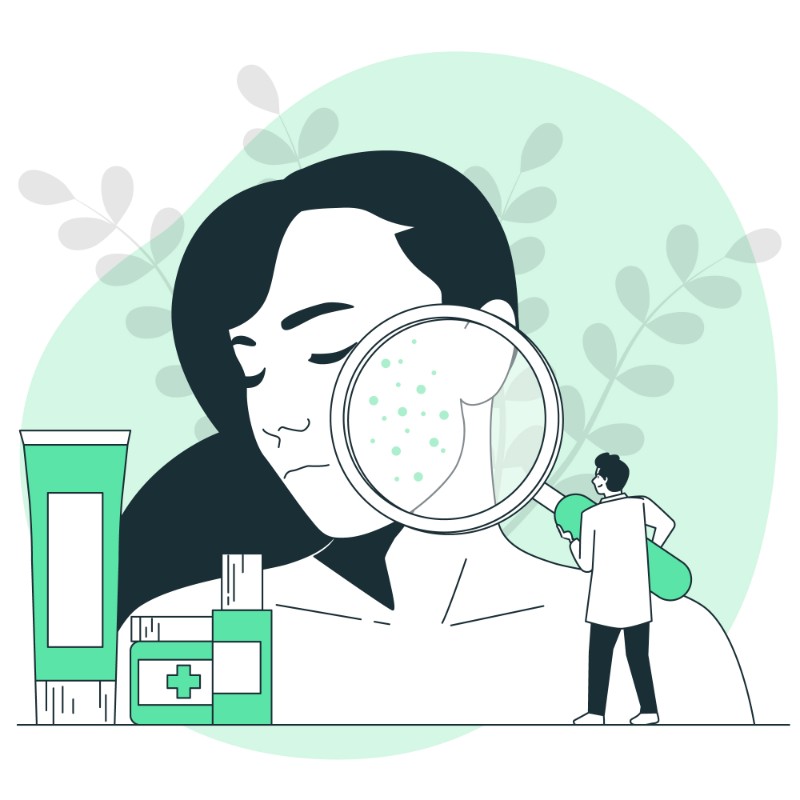
When medical help is required
The moment acne starts to appear on your skin, book an appointment with a doctor (a dermatologist) as soon as possible. Continue observing your acne, and if any of the points below apply to your case, revisit, or consult a doctor.
- When you start getting acne
- Acne is not clearing up or getting worse
- They are healing but leaving scars behind
- Acne treatment products cause skin irritation or itching
- If it is affecting your mental wellbeing
Any skin problems need to be treated as soon as possible before they deteriorate, become more difficult to treat, or leave irreparable damage.
Reasons behind acne, and who gets them?
Does acne affect people from all age groups? Acne is mostly common in teenagers. None the less, some adults may get acne due to hormonal changes among other factors which are mentioned below:
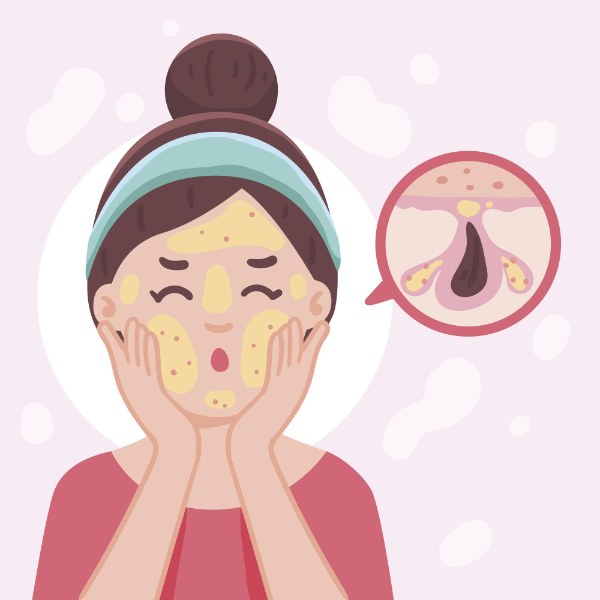
Clogged Pores
It usually occurs more in people with oily skin or combination skin. The skin pores are clogged with dead skin cells, excess oil, and bacteria.
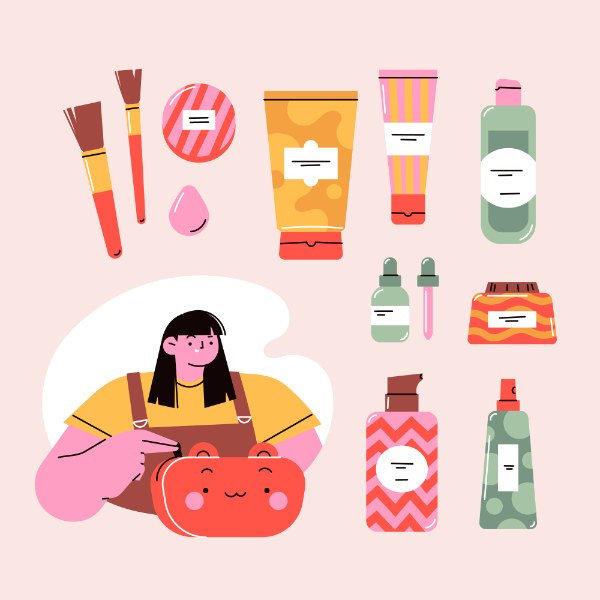
Wrong cosmetics and skin products
Skin products that are pore-clogging and have oils. Wrong choice of products that don’t match the skin type.
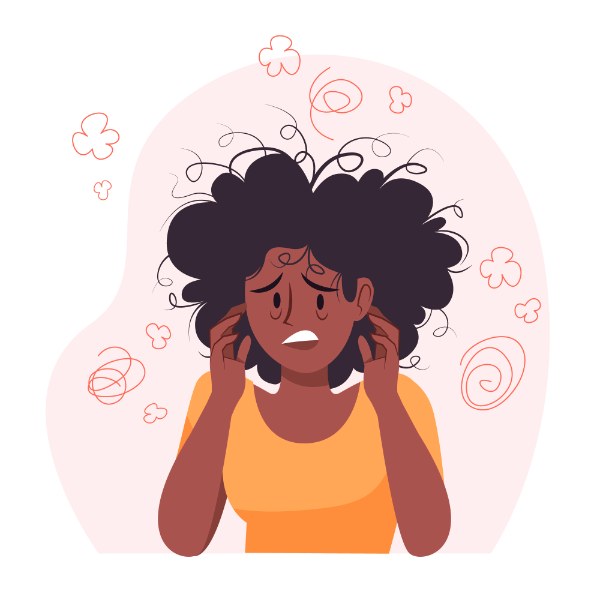
Stress
Doesn’t create acne. However, it may cause a hormonal imbalance, which could be the cause of acne. Also, some people who are in stressful situations tend to pick at the acne that is aggravating them.
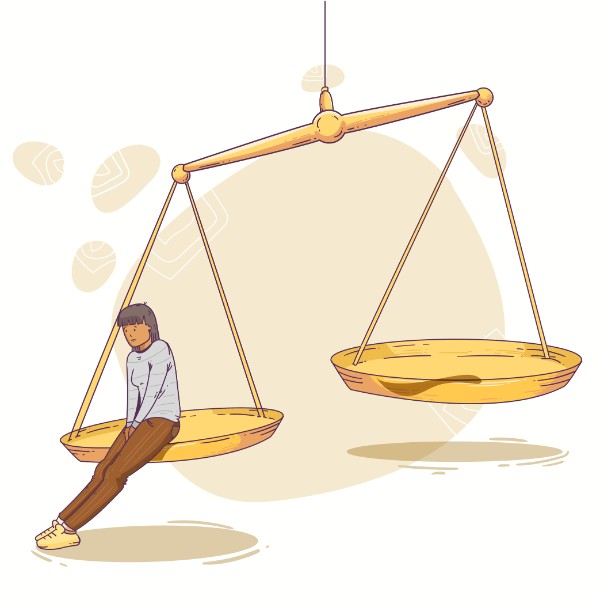
Hormonal imbalance
In some cases, there is excess production of androgens (such as testosterone) during the teenage years in both males and females. This excess causes the sebaceous gland to increase in size, in turn producing more sebum. In adults, androgens are estrogens in women, along with other hormonal changes such as menstruation and pregnancy. Other causes are PCOS (polycystic ovarian syndrome), birth control medication, and fluctuations in thyroid hormones.
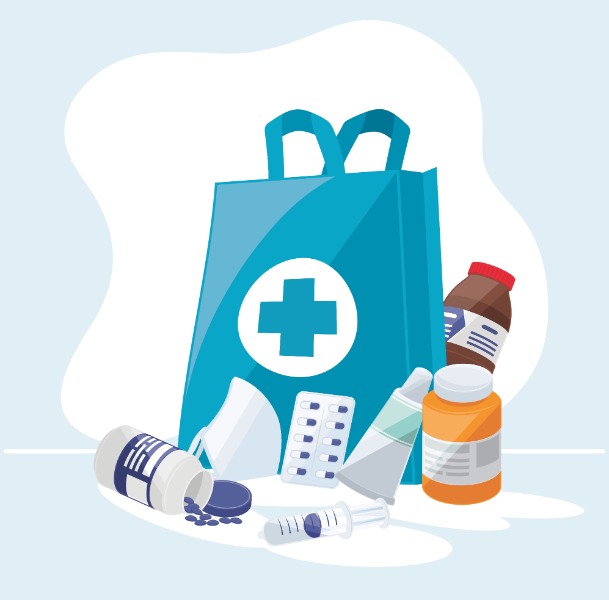
Medication
Some medications may be the reason for the appearance of acne, such as corticosteroids, lithium (used for bipolar disorder), Vitamin B12, bromides and iodides (used in sedatives and cough medicine), anticonvulsants (used by people who get seizures), etc.If this is the reason you are getting acne, then after stopping the medication, your acne will naturally go away. However, not all medications can be stopped, as some of them are vital for survival, such as medication for seizures and bipolar disorder. Acne that is caused by medication is rare.
Preventive measures to take against acne
The most important measure to take against acne is to prevent it from showing and to avoid worsening it. A very vital point is to have unclogged, clean pores. This can be achieved by following a few steps, which are stated below:
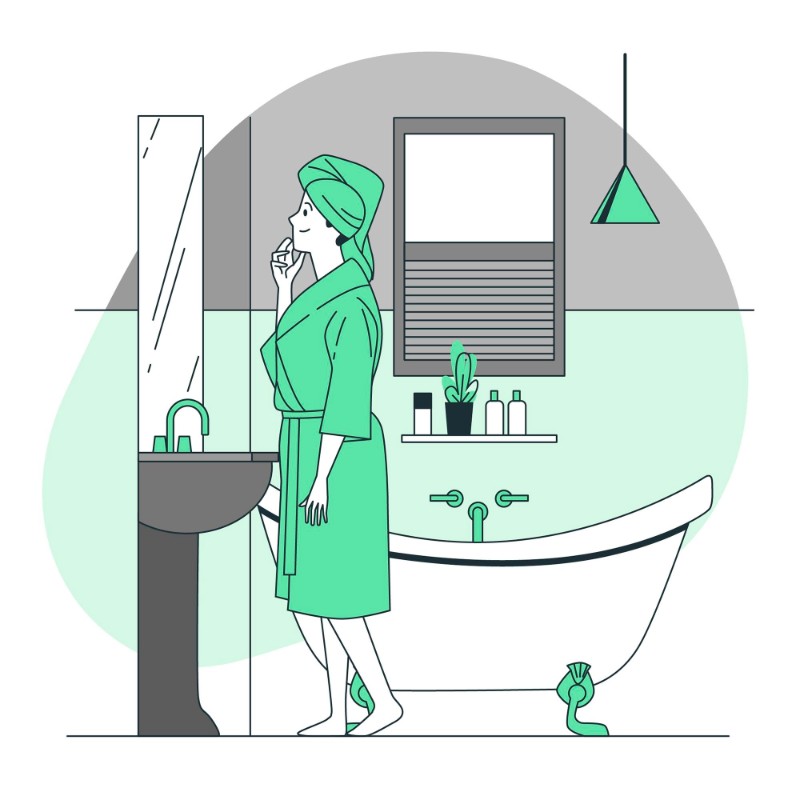
Wash your skin once to twice daily
Make it a habit to wash your skin every day once in the morning, which will remove sweat, bacteria, and excess oil and leave your pores clean. This will also help you start your day refreshed and ready to conquer all your tasks for the day. You should also wash your skin once a night before sleeping or after any type of exercise. The type of soap or cleanser used should be mild and suitable for your skin type. Try not to wash with hot water since it is one of the major causes that dries the skin and irritates your acne.
If you over wash your skin, it will be stripped of all its natural oils, and the sebaceous glands will overcompensate and produce excess oil, which will in turn cause your skin to become oilier and spread more acne. You must not wash more than twice a day to avoid drying your skin, unless advised differently by your dermatologist.
Sanitary contact
Make sure your hands are clean before you touch your face, and whenever you talk on your phone, make sure it has a clean surface. Also, change your pillowcases and bed sheets regularly. These are the three most common surfaces that collect bacteria.
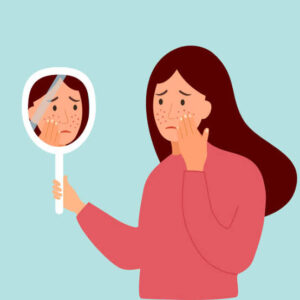

Tight Clothing
If you have acne on your neck, shoulders, back, and chest, make sure to wear baggy, breathable clothing to decrease the amount of friction the clothing has with your skin. The more you wear tight clothes, the more you will sweat.
If you over wash your skin, it will be stripped of all its natural oils, and the sebaceous glands will overcompensate and produce excess oil, which will in turn cause your skin to become oilier and spread more acne. You must not wash more than twice a day to avoid drying your skin, unless advised differently by your dermatologist.
Don’t aggravate your acne
Don’t squeeze, pop, or rub any type of acne, as this will worsen it and may be the cause of its spreading. Popping acne may cause it to scar (sometimes it leaves depressed/ atrophic scars, elevated/hypertrophic scars, and dark spots).
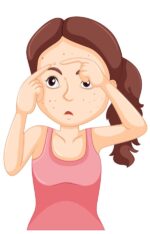
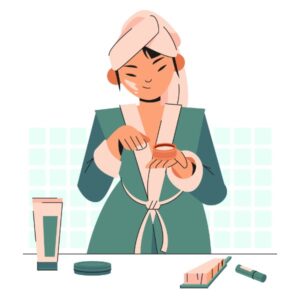
Always remove your makeup before sleeping
When it comes to makeup or other products you apply to your skin, make sure to choose what is suitable for your skin type and that it isn’t oil-based. Always remove makeup from your skin before sleeping, since makeup can also be a reason for clogged pores.
A method commonly used is the double cleansing method. Start by using preferably micellar water and cotton pads and gently dab the product on your skin, then continue in a circular motion. This will breakdown makeup molecules. Avoid using makeup wipes since they use chemicals that will clog your skin pores and are harsh on the skin, resulting in irritation, breakouts, and dry skin. Double cleanse: after removing your makeup, wash your face with a cleanser suitable for your skin. This will remove any dirt or left-over makeup residue. Finally moisturize.
Avoid getting any oil-based or heavy products on your skin
If you use any products such as hair sprays, gels, or serums, try to keep them from going on your skin to avoid clogging your pores.
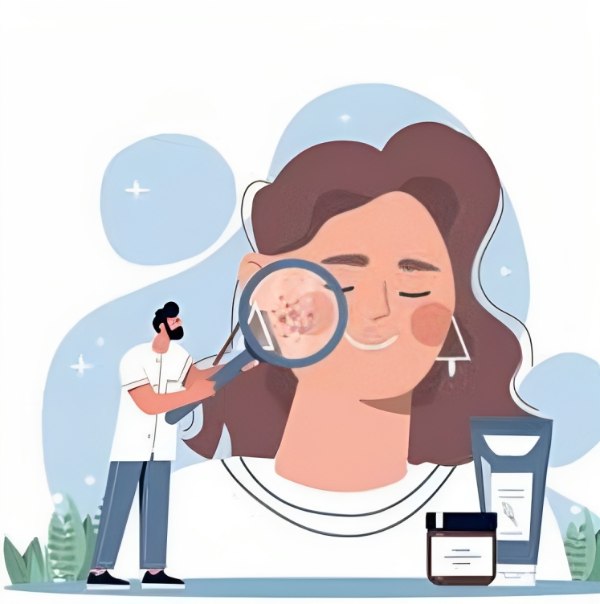

Track your diet
A debate that has been going on for a long time! Does food cause acne?
Some studies showed that high fat food, high sugar food, and milk may contribute to breakouts or making them more severe. To check if your breakouts are related to any types of foods, make a note of everything you eat and check if there is any correlation between them and your acne. Cut down on the foods you think are contributing to your acne and monitor your skin for a while to see if there is a difference. However, there is no concrete evidence that food is a cause for acne and no proof that removing certain types of food will clear or even affect your acne.
Book an appointment with a dermatologist
Whether you have mild or severe acne, you shouldn’t self-medicate, as it could unknowingly cause more harm than good. It may also overlap with any other medication you take. Hence, it is recommended to visit a dermatologist since they have seen many different cases of patients with acne and know what the best route is to take when treating your acne.
The doctor may request some blood tests or other types of medical tests so he or she can determine the cause of your acne before setting out the plan you will follow. The treatment plan could include oral medication and/or topical medication. Some of the medications may contain salicylic acid, benzoyl peroxide, niacinamide, retinoids, etc. While some of the oral medications could be antibiotics for the purpose of killing the bacteria that create acne, in very severe cases, sometimes medications that contain isotretinoin are prescribed. These medications or products may cause your skin to dry, which is why you will use gentle hydrating cleanser and moisturizer alongside them. However, any medication or product that causes your skin to become more irritated, red, itchy, or causes your acne to get worse, you must stop immediately and consult your dermatologist.
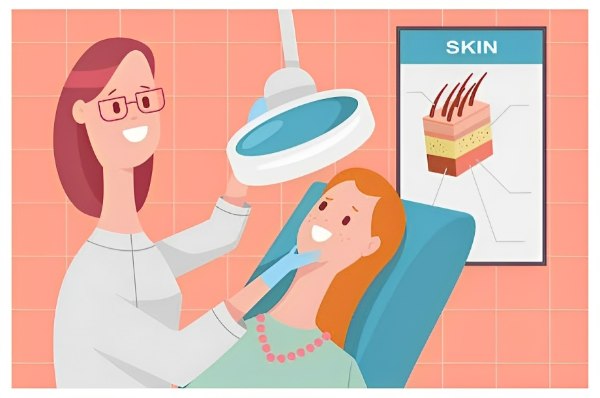
Acne requires you to be patient because, as fast as they appear, multiply, and grow, treatment takes some time to heal and for the scars to disappear. When you have a plan to conquer your acne, stick to it, don’t lose hope, and don’t start skipping any of the medication or topical products you are supposed to use. “To lose patience is to lose the battle," said Mahatma Gandhi.

